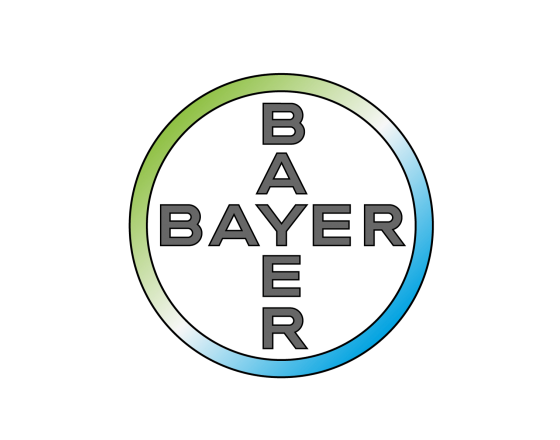
Malaysia CPD Accreditation
Established in 1996, our purpose is to drive excellence in CPD accreditation by helping CPD providers with the guidance and knowledge to deliver training courses and events to the highest standards, against an industry-leading CPD assessment framework.
Continuing Professional Development in Malaysia
Institutional bodies and associations across the world recognise the need for a structured approach to learning following completion of formal education. Continuing Professional Development (CPD) is a commitment to ongoing lifelong learning, and identifies opportunities to refresh existing knowledge, improve skills, and keep up-to-date with developments within a profession or industry.

Introduction to CPD
Continuing Professional Development combines different approaches to learning that includes training courses, seminars, workshops, conferences and events, webinars and online eLearning programs. CPD also include sharing best practice techniques, thoughts and ideas, all focused towards an individual improving within the work environment.
Continuing Professional Development enables learning to become conscious and proactive, rather than passive and reactive. It involves an individual documenting and keeping a record of their increasing skills, knowledge and experience throughout their career.
International growth of CPD
More and more countries are adopting and encouraging CPD as the concept for professional learning within their remit as a recognised international benchmark. CPD as a concept can be traced back to the decades following World War II. Institutional bodies identified a need for structured learning after formal education.
From its beginning, Continuing Professional Development was then established by a few UK professional bodies in the 1980s for key industries such as medical and healthcare, finance, engineering, architecture and law.
In more recent decades, CPD has continued to grow with international globalisation and the ease of new learning technologies in distance and online education. Malaysia is one country that has prioritised CPD for industries to thrive and stay up-to-date with new developments and industry recognised standards of learning.
The role of CPD in Malaysia
Continuing Professional Development is increasingly supported in Malaysia with various industries now encouraging professionals to complete CPD and improve knowledge and skills, as well as keep up-to-date with industry developments.
Common CPD terminology
The common terminology relating to Continuing Professional Development in Malaysia reflects the standard terminology used in UK, which includes:
- Continuing Professional Development (CPD)
- Professional Development (PD)
- Continuing Professional Education (CPE)
- Continuing Professional Development hours (CPD hours)
- Continuing Professional Development points (CPD points)
Malaysia CPD Requirements
Malaysia has several different annual CPD requirements for various industry sectors, some of the main examples can be found below.

CPD for Medical professionals
The Malaysian Medical Council (MMC) encourages medical practitioners to participate in CPD. Medical professionals receive an annual practicing certificate from the MMC, which has been a requirement for practicing medical professionals since the introduction of the Medical Regulations 2017.
The MMC puts emphasis on ethical responsibility, public safety and public trust as the main reasons for the introduction of the regulations. Medical professionals in Malaysia are required to complete 20 CPD points per year from 1st July to 30th June. Extra CPD points can be carried over to the following CPD year.
CPD for Engineers
The Board of Engineers Malaysia use CPD to maintain high standards within the industry. CPD activities must be completed with the intention to, (a) maintain engineering and technical knowledge and skills (b) stay abreast with developments, advancement and innovations as well as in general engineering knowledge, and (c) to keep up-to-date with changes in engineering codes, regulations and guidelines.
Practicing engineers in Malaysia must CPD annually, depending on the job role and qualification, ranging from 25 hours per year to 50 hours per year, which are recorded and submitted every 3 years.

CPD for Malaysian Accountants
The Malaysian Institute of Accountants have regulated that practicing accountants in Malaysia must complete a minimum of 120 CPD hours every 3 years. The Institute also states that: ‘at least 60 CPE credit hours should be structured and verifiable, and at least twenty (20) CPE credit hours of such structured and verifiable CPE learning should be obtained each calendar year.’
These policies help to ensure high standards are maintained within the Malaysian accounting industry.
CPD for Architects
The Board of Architects in Malaysia have state that CPD participation helps to support the development and quality of Malaysian architectural projects. Both architects and graduate architects in Malaysia are required to complete at least 10 CPD points per year to practice.
CPD requirements for Lawyers
Lawyers in Malaysia are required to complete Continuing Professional Development within a CPD cycle of 24 months, starting 1st July and ending 30th June. Lawyers in Malaysia complete a minimum of 16 hours of CPD per cycle.
After the minimum requirements are met, up to 5 CPD hours/points can be transferred over to the following CPD cycle period. This helps to ensure that lawyers in Malaysia are kept up to date and aware of changing laws and standards.
What can be CPD accredited?
Continuing Professional Development accreditation covers a wide range of different learning methods. Our Assessments team review thousands of CPD courses, workshops, seminars, conferences and events every year.
Training Courses
CPD training courses are the most well-known method of completing Continuing Professional Development, vary in length and will often be specific to one subject or offer skills in a particular area of industry
Seminars
Seminars are a type of short course and typically only a few hours long up to one day. CPD seminars provide an opportunity to focus on a subject matter in detail, conducted in group settings with interactive discussion, to allow individuals to contribute leading to a better retention of knowledge.
Workshops
CPD workshops are interactive educational group sessions are and similar to seminars, but with a few differences. CPD workshops are less theoretical and tend to offer a more hands-on, practical skills approach to learning.
Webinars
Webinars are online learning held virtually and attended by an online audience. Often, the main objective of a CPD webinar is to educate and inform professionals in a short and concise manner about new and relevant information.
Events
There are number of different forms of learning that can be considered CPD events. CPD events includes conferences held at venues that may include keynote sessions and breakout learning by topic. Seminars and workshops may also feature as part of wider CPD events.
Online Courses
Online CPD courses are an increasingly popular method of learning, and offer convenience and affordability, in that there is no need to attend an in-person event and course materials can be shared free online.
CPD Accreditation FAQs
Marketing support for our accredited CPD providers
The CPD Service provides different membership levels to suit your training accreditation needs and budget. Membership levels are determined by an initial FREE consultation resulting in recommendations for your most effective routes to market. Accredited CPD providers are able to utilise key features of membership which help to support business, marketing and training objectives.
- Review and advise on organisational CPD requirements
- Training Accreditation of courses & events, from 1 – 250+ activities a year
- Licence to use CPD Member logo on company marketing materials
- CPD Certified symbol on approved CPD course materials
- Presence in CPD Providers Directory for user validation and searching
- All accredited training courses listed in the Course Catalogue
- Ability to publicise certified events on CPD Event Calendar
- Full administration of delegate CPD certificates post activity
Who is CPD for?
CPD is carried out by millions of individuals across a whole range of industries and professions. Most professional bodies and institutes will provide individuals with Continuing Professional Development requirements, generally as a set number of CPD training hours to achieve each year. Over recent decades, we have seen the commitment to CPD reach far beyond the traditional industries and institutional bodies of the UK to what is now recognised and embraced across the world.
What are CPD points, hours and credits?
The majority of institutions and professional bodies provide Continuing Professional Development targets generally set on an annual basis. These targets are defined by the accrual of CPD activities through attendance in training courses, eLearning and events, as well as other forms of structured learning. Most professional bodies use CPD hours as their measure, and where CPD points or credits are used, these are typically a 1:1 ratio with CPD hours. By this, 1 CPD point would be equal to 1 CPD hour.
How do I log and record CPD activities?
CPD is something that most people will do on an ongoing basis as part of their career. To reflect and keep track of learning, it is important to maintain a regular and up to date record of any completed learning and development activities, as well as future goals or professional achievements in the work environment. A CPD log and record of learning activities undertaken can be kept using an online purpose-built CPD recording tool, such as the myCPD Portal.
How does the Delegate Certificate Service (DCS) work?
The Delegate Certificate Service (DCS) is a membership feature available to all CPD providers at no additional cost designed to save time and cost when administering post-training attendance certificates. The CPD Certification Service provides certificates of attendance for organisations ranging from small consultancy firms to large training providers, multi-national corporations, conference & event organisers, universities, further education colleges, local authorities, councils and Government departments.
What is the CPD Cycle?
The CPD Cycle is a practical tool that helps individuals to structure their Continuing Professional Development learning easily throughout the year, and to identify regular and measurable improvements in work-related skills and knowledge. There are five key stages of the CPD Cycle that are important when planning professional development activities for the year. These include Stage 1 - Identifying Your Needs, Stage 2 – Planning, Stage 3 - Acting/Doing, Stage 4 - Reflecting on Learning, Stage 5 - Implement your New Learning.
What is myCPD Portal?
myCPD Portal is a free online record tool that allows individuals and organisations to log, track and manage their Continuing Professional Development in one simple place. Users can set annual CPD targets, review training records, store attendance certificates and monitor learning progress. This makes it easier to reflect on knowledge and skills that have been obtained throughout the year.
Testimonials
The CPD Certification Service makes the process of CPD accreditation very straightforward to follow. A big thank you for all your help.

Our events are CPD certified, demonstrating our commitment to deliver high-quality training and adhere to a code of best practice.

Membership of the CPD Certification Service shows our commitment to excellence and to providing CPD for our staff.












